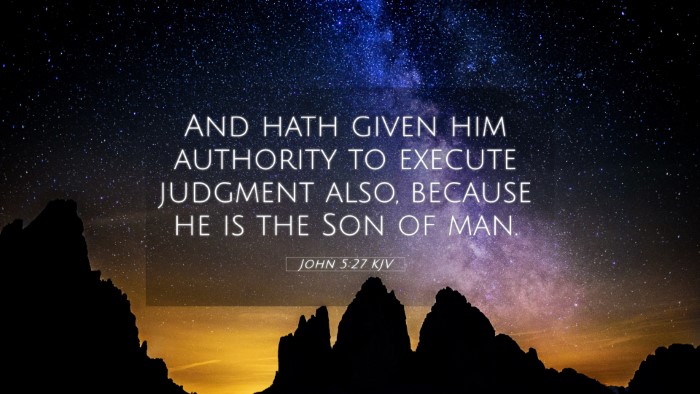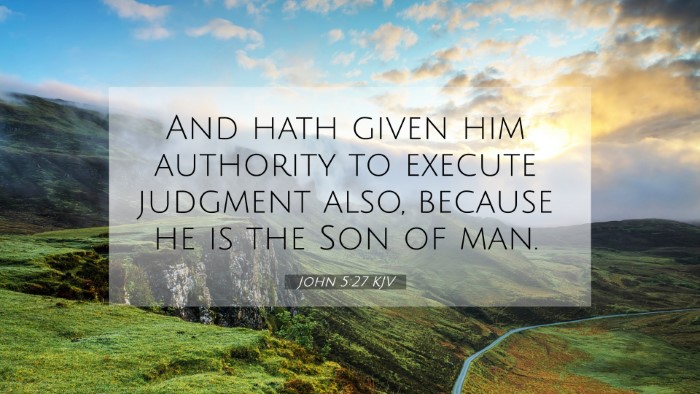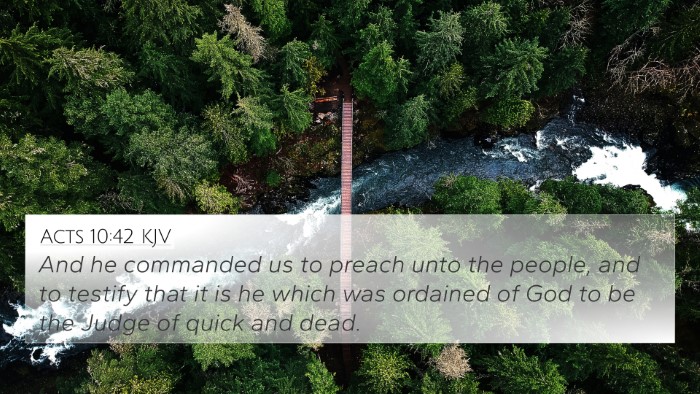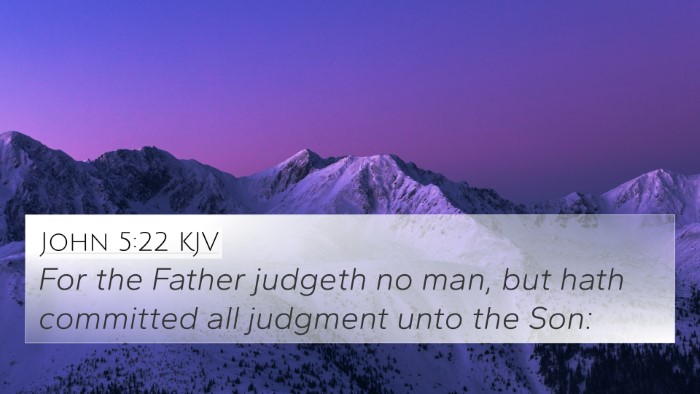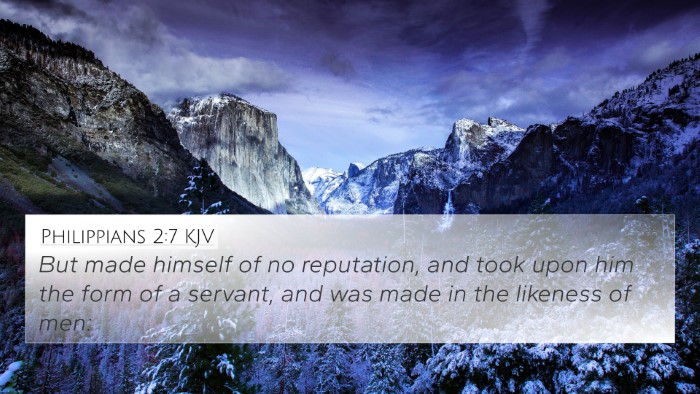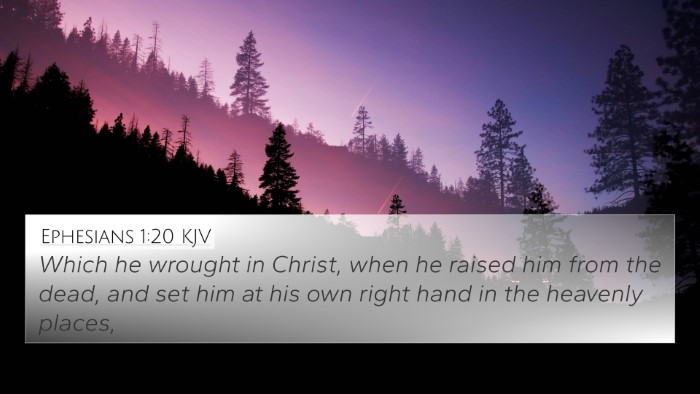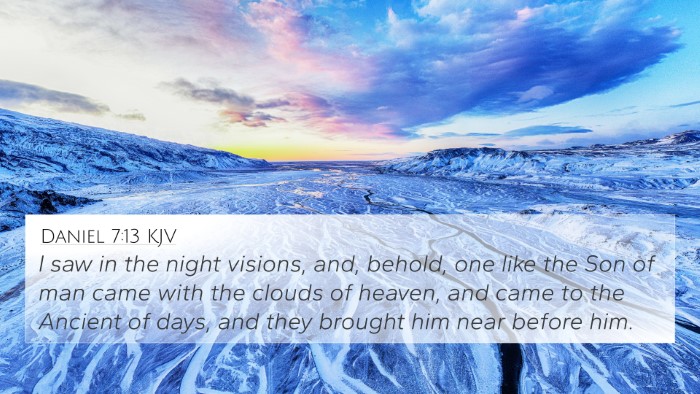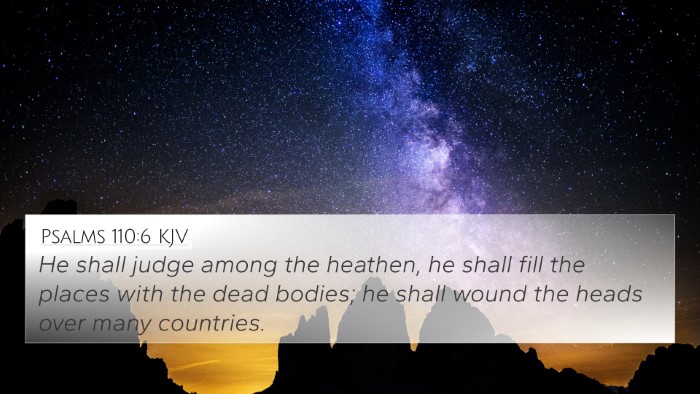Understanding John 5:27
John 5:27 reads, "And has given him authority to execute judgment also, because he is the Son of Man." This verse highlights the authority of Jesus in judgment, emphasizing his role as the divine judge bestowed upon him by God the Father.
Key Themes and Insights
- Authority of Christ: The verse underlines the notion that Jesus has been given authority to judge, reinforcing his divine status as the Son of Man, a title that emphasizes both his humanity and his messianic role.
- The Judgment Role: Christ’s role as a judge connects to the broader biblical theme of judgment, which is found in various scriptures throughout the Bible.
- Divine Commission: This authority signifies a divine commission, fulfilling Old Testament prophecies and establishing Jesus' credentials as the awaited Messiah.
Comparison and Cross-Referencing
This verse can be understood deeper by looking at its connections to other biblical texts:
- Acts 10:42: "And he commanded us to preach unto the people, and to testify that it is he which was ordained of God to be the Judge of quick and dead." - This verse affirms Jesus’s role as the judge of all, both the living and the dead, illuminating the authority mentioned in John 5:27.
- Matthew 28:18: "And Jesus came and spake unto them, saying, All power is given unto me in heaven and in earth." - This highlights the comprehensive authority given to Jesus, which encapsulates all realms of existence.
- John 9:39: "And Jesus said, For judgment I am come into this world, that they which see not might see; and that they which see might be made blind." - This reinforces Jesus's mission and the nature of his judgment.
- Revelation 19:11: "And I saw heaven opened, and behold a white horse; and he that sat upon him was called Faithful and True, and in righteousness he doth judge and make war." - This prophetic vision conveys the ultimate expression of Christ’s authority in judgment.
- John 5:22: "For the Father judgeth no man, but hath committed all judgment unto the Son." - This strengthens the theme of Jesus's given authority, emphasizing his unique role in the divine judgment process.
- Romans 14:10: "But why dost thou judge thy brother? or why dost thou set at naught thy brother? for we shall all stand before the judgment seat of Christ." - This serves as a reminder of the language of judgment associated with Christ.
- Hebrews 9:27: "And as it is appointed unto men once to die, but after this the judgment." - This highlights the inevitability of judgment, a theme central to the New Testament teaching on Jesus's authority as judge.
Analytical Insights from Commentators
Matthew Henry: He emphasizes that the authority given to Christ is not merely ceremonial but is significant for judgment. This judgment includes both the discerning of eternal fate as well as daily moral guidance in believers' lives.
Albert Barnes: Barnes comments on the term "Son of Man," highlighting its roots in the prophetic books that speak of the Messiah's judgment and the importance of recognizing Jesus in this duality—both a humble servant and a powerful judge.
Adam Clarke: Clarke elaborates on the implications of Christ's authority, suggesting that this role serves both to bring hope to believers through advocacy and to warn of the serious realities of divine judgment.
Practical Applications
Understanding John 5:27 and its connections helps believers to:
- Recognize the authority of Christ in their lives and the significance of moral and ethical choices.
- Develop a deeper appreciation for the themes of judgment and redemption throughout the Bible.
- Engage in reflective practices, using cross-referencing tools to appreciate the interconnectedness of Scripture.
Tools for Bible Cross-Referencing
To further explore the connections between Bible verses, the following tools are beneficial:
- Bible Concordance: A reference work that lists words in the Bible and where they can be found, helping with locating verses related to specific themes.
- Bible Cross-Reference Guide: A systematic method for tracking connections between scriptures.
- Bible Chain References: This method connects scripture with scripture, allowing for deeper thematic studies.
Conclusion
John 5:27 is a profound declaration of Jesus's authority as judge, interwoven with the fabric of biblical prophecy and New Testament theology. Through comparative Bible verse analysis and cross-referencing, we enrich our understanding and appreciation of Scripture as a holistic revelation of God’s redemptive plan through Christ.

